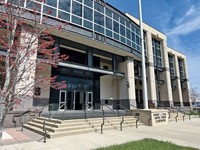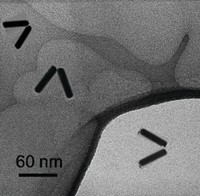Advertisement
Grab your lab coat. Let's get started
Welcome!
Welcome!
Create an account below to get 6 C&EN articles per month, receive newsletters and more - all free.
It seems this is your first time logging in online. Please enter the following information to continue.
As an ACS member you automatically get access to this site. All we need is few more details to create your reading experience.
Not you? Sign in with a different account.
Not you? Sign in with a different account.
ERROR 1
ERROR 1
ERROR 2
ERROR 2
ERROR 2
ERROR 2
ERROR 2
Password and Confirm password must match.
If you have an ACS member number, please enter it here so we can link this account to your membership. (optional)
ERROR 2
ACS values your privacy. By submitting your information, you are gaining access to C&EN and subscribing to our weekly newsletter. We use the information you provide to make your reading experience better, and we will never sell your data to third party members.
Research Integrity
Purdue Professor Reprimanded
After research misconduct finding, bubble fusion researcher is stripped of title
by Elizabeth K. Wilson
August 27, 2008
Rusi P. Taleyarkhan, the Purdue University nuclear engineer who achieved notoriety for his controversial claims to have achieved "tabletop" nuclear fusion by sonoluminescence, has been stripped of his named professorship in the wake of an academic committee's conclusion that he committed research misconduct.
Taleyarkhan, who was Arden Bement Jr. Professor of Nuclear Engineering, will remain on the Purdue faculty but with the title of Special Graduate Faculty.
In July, an academic committee determined that Taleyarkhan had been heavily involved in a supposedly independent replication of his work, which they concluded was research misconduct (C&EN, July 28, page 14).
"In my judgment as Purdues chief academic officer, it is inappropriate for a faculty member who has been found guilty of research misconduct to hold the title of a named university professor," Purdue Provost William R. Woodson said in a statement to Taleyarkhan on Aug. 27.
Taleyarkhan also will not be allowed to serve as a major professor for graduate students for the next three years, Purdue officials announced.
In 2002, while he was a scientist at Oak Ridge National Laboratory, Taleyarkhan performed experiments in which he bombarded deuterated acetone with high-energy sound waves, causing bubbles to form, expand, and implode with great energy (Science 2002, 295, 1868). Taleyarkhan claimed he had observed characteristic radioactive particles that suggested deuterons had fused in the implosion. The possibility that Taleyarkhan had discovered this long-sought-after, almost limitless energy source became an international sensation.
But many scientists were skeptical, and after several labs failed to replicate Taleyarkhan's difficult experiments, criticism of his work grew more vocal.
Taleyarkhan appealed the July decision, but his request was denied by the university's appeals committee. The case will be reviewed at the end of three years to determine whether Taleyarkhan will be reinstated as a full professor, Purdue officials said.





Join the conversation
Contact the reporter
Submit a Letter to the Editor for publication
Engage with us on Twitter